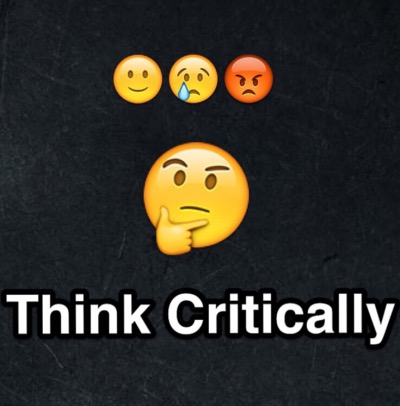2016 is proving to be a rough year for America. Social divisiveness is rampant fueled by a highly unusual election, episodes of police brutality, acts of violence, and political, racial and religious scapegoating. The Internet and social media have revealed a dark movement in America born out of economic struggle, frustration and social apathy. The Republican Party, after spending decades cultivating a culture of blame and general disregard for intellectualism, has given us a nominee who is acting as both champion and provocateur of this movement. Donald Trump’s poll numbers demonstrate that he is unlikely to win, but the specter he has raised is equally unlikely to go quietly and without incident. It is shocking and painful to bear witness to the sentiments many Trump supporters express at rallies and on social media. We must bear witness, however; because that is how we find our silver lining in all this mess.
As we get closer to the election, Hilary Clinton’s lead over Trump is growing. As of today’s Reuters/Ipsos poll, she has a lead of 12 points among likely voters. While I find this heartening, I am still troubled by the amount of people still loyally supporting Trump. In my home state of Missouri, Clinton has a lead of only 1 point. If this were a normal election, I wouldn’t be surprised by this, in fact, I would be shocked for national polling to show such a gap. But, this is not a normal election. It is the first time we have had a female nominee. It is the first time a nominee’s spouse has been a former President. It is the first time Democrats have selected a standard-bearer since America’s first and only African-American President. It is also the first time we have had a nominee like Donald Trump, a self-proclaimed billionaire and reality-t.v. celebrity, who is a patchwork quilt of undesirable and dangerous traits. He has no political training or experience, eschews reading, advice and facts (fact checkers have given him a truth telling percentage of 4%), and touts an authoritarian and incendiary message overflowing with racism, misogyny, Islamophobia and violence-all with a 5th grade vocabulary. He speaks and “tweets” without thought, churning up controversy and invoking outrage on a regular basis. He battles narcissistic wars on the media and whomever he perceives as criticizing him, whether it be Gold Star families or fellow Republicans. On top of it all, he demonstrates very little understanding of domestic and foreign policy, let alone the Constitution. Yet, he still has a loyal following. So, what’s really going on here?
We have known since the primaries that Donald Trump’s supporters are overwhelmingly white males without a college degree. Early theories of his popularity among this group centered around the idea that they are economically disenfranchised by technology and a global economy, and that Trump appeals to them with his nationalistic approach to trade and immigration. In August, however, Gallup released a large research study that pulled that theory into question. The findings of the study demonstrated that while Trump supporters are, in fact, mostly white, blue collar males, they are not economically distressed. They do, however, live in communities that have seen influxes of immigrants and express that they feel a loss in social status and a fear that their children will not enjoy the same upward mobility that they did. The latter fear, I would posit, is a common concern among many Americans and should definitely be at the center of the national conversation. It is a complex issue that encompasses many socioeconomic issues in addition to the affects of technology and a global workforce, such as social security, the aging of the Baby Boomers, and healthcare to name a few. The first two commonalities that Gallup reported are of more interest in understanding Trump’s following as they have to do with two issues: diversity and blame.
As I mentioned earlier, the Republican Party has purposely cultivated a culture of blame and suspicion–even worse, blame and suspicion that is not rooted in fact. They have allowed the alt-Right entertainment media to act as the voice of the party for many years. The prolific and popular Fox News openly blurs the lines between entertainment and journalism, and Republican politicians have exploited that market to manipulate their constituencies–a practice they are most likely regretting now that Trump has gone so far as to place the head of Breitbart, Stephen Bannon as his campaign leader. The Internet is littered with alt-Right media outlets that have the journalistic integrity of The National Inquirer, running articles filled with conspiracy theories and the barely veiled bigotry of white-identity politics. Since they have irresponsibly allowed–even supported–narratives outside of the pragmatic rules of logic and discourse, the Republican Party has created the nearly impenetrable “echo-chamber” of Trump supporters on social media. The many Republican politicians who fear Trump is an unqualified standard-bearer and would be a dangerous President are in a quandary as they have nurtured the ideal Republican voter to be non-thinking and reactionary.
As many Americans have made strides to embrace and celebrate diversity and multiculturalism, actively working on equal rights and opportunities for all, it must be understood that as human beings we have an innate distrust for the “other”–that is, anyone who has physical or sociocultural differences from us. It is up to us as a thinking and social people to overcome that tendency. If a community is experiencing worry, anxiety or fear, as many are now, due to economic difficulty and stagnation, terrorism and acts of violence, they will look for some “other” to blame. For the white male, there are plenty of “others” to blame. They see the differences in faces of their community–racial differences, religious differences, sexual-orientation differences, gender differences–and they blame those who are different for personal and social problems. Instead of working to solve the many problems we face in a progressive and thoughtful manner, some are choosing to slide down that slippery-slope of national recidivism–quite frankly, they would prefer not all people had equal rights and opportunities in America. Trump’s slogan, “Make America Great Again,” begs the question: When was America great? Remember, that every step backward is at the exclusion of the rights and opportunities of one or more of the many identities represented by the American people. To disregard the life, liberty and pursuit of happiness of another group of Americans is an expression of social apathy, or, outright hate. Sadly, both sentiments are highly contagious and are spread rampantly through unintelligent and, often, vulgar social media posts.
If we look at the factors in the Trump movement as including the response to diversity, the propensity to blame, social apathy, and a disregard for factually-informed thinking, we must also include the obvious: misogyny. There are some that openly admit that they don’t think a woman should be President, but there are many that simply make their opinion known by consistently engaging in false equivalency. The definition of false equivalence is “a logical fallacy which describes a situation where there is a logical and apparent equivalence, but when in fact there is none. This fallacy is categorized as a fallacy of inconsistency.” The criticisms that the Trump campaign and Trump supporters offer about Hilary Clinton are positively embedded with double standards. Unfortunately, this is not a new phenomenon for women, but, much like systemic racism, one people are loathe to admit. An example is criticizing Clinton as a liar, when we all know Trump’s acquaintance with the truth is nominal. Other examples include describing her as unqualified, crooked, self-interested–the bar is set so low with Trump that criticisms like these seem bizarre.
It is my hope, that by the end of this election, more people will have snapped out of the trance that is drawing them to Trump, but the silver lining in all this divisiveness is that we know the steps that we need to work on as a country. The Republican Party will have to work hard to rectify the damage it has done to itself and its people. Critical thinking skills should be learned before college. Systemic racism and misogyny must be addressed. We must promote a culture of solutions, not blame. Most of all we need to look forward and resist the urge to believe that a better time existed before–because, it most certainly was not a better time for all Americans. That should always be our goal.





